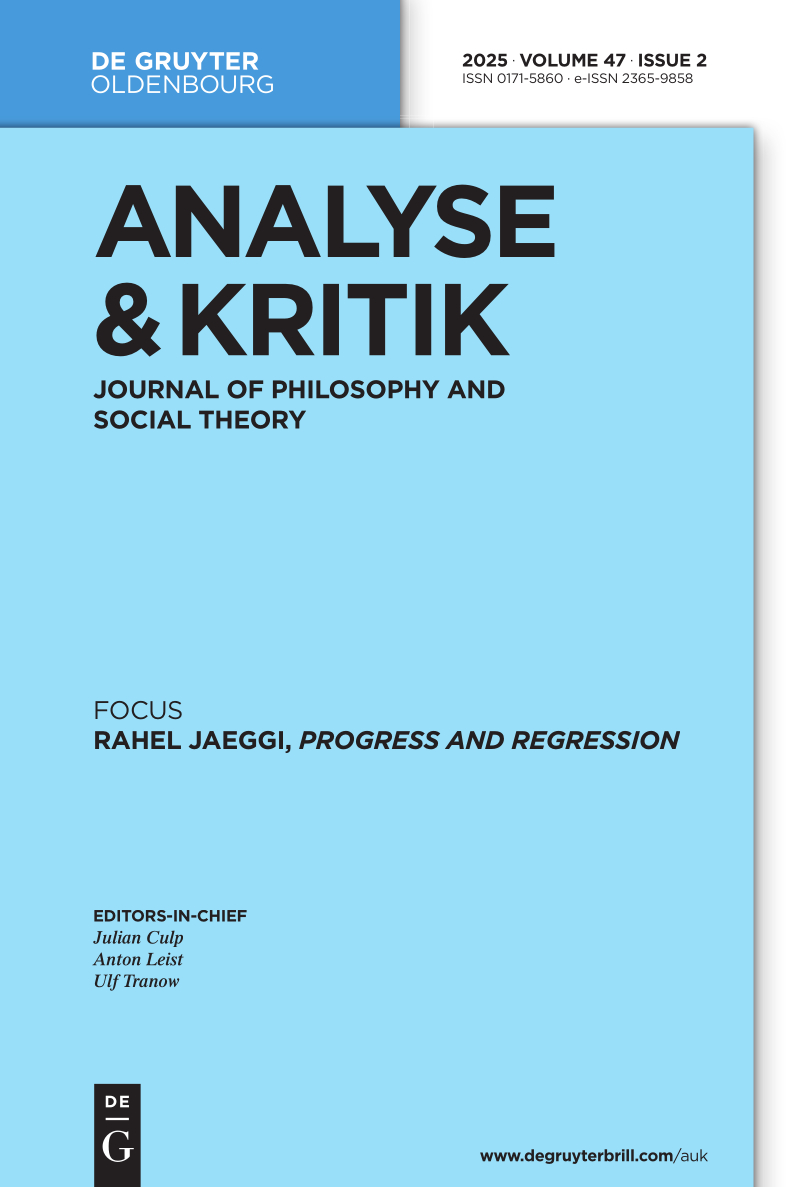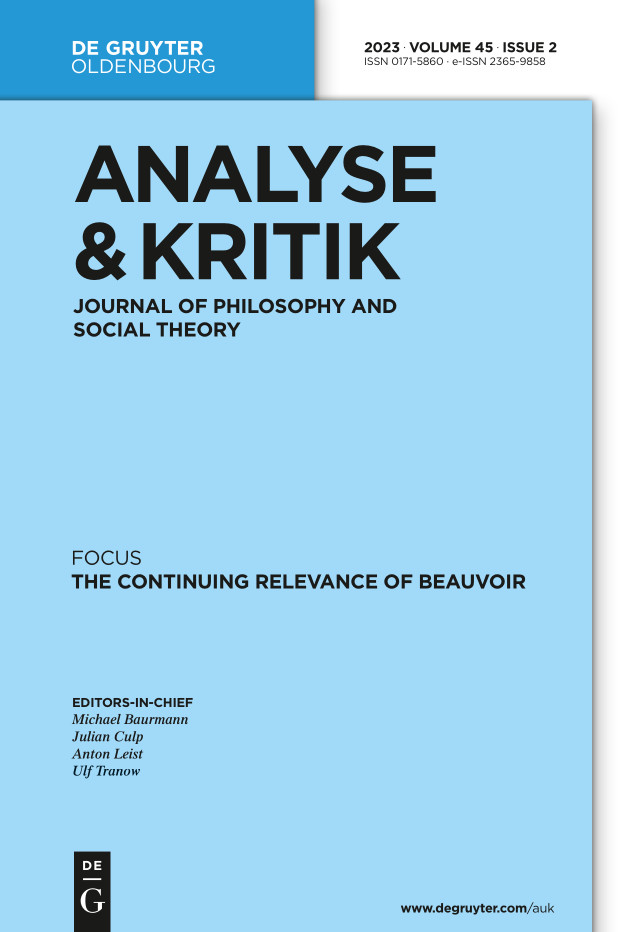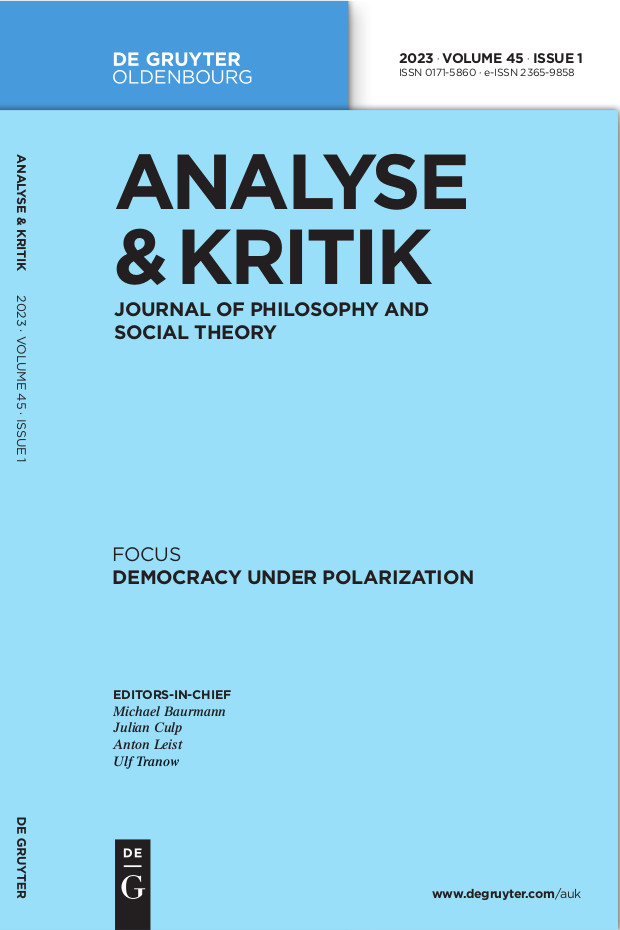Progress and Regression
 | 2025 (47) Issue 2 |
Work and Democracy in Conflict
 | 2025 (47) Issue 1 The relationship between democracy and work under the conditions of a capitalist market economy is often described as conflictual. While democracy is based on principles such as equality, participation, deliberation and collective decision-making, the capitalist world of work is characterized by hierarchies, unilateral instructions, the logic of ownership and the imperative of profit maximation. These fundamental differences create a persistent tension between democratic ideals and the realities |
Focus: Shmuel Nili, Philosophizing the Indefensible: Strategic Political Theory
 | 2024 (46) Issue 2 |
Focus: Symposium on Laura Valentini, Morality and Socially Constructed Norms
 | 2024 (46) Issue 1 |
Focus: The Continuing Relevance of Beauvoir
 | 2023 (45) Issue 2 A plea for Beauvoir’s timeliness today has to assert itself in a field that has become confusing, both in terms of gender relations in Western societies and in the face of the diversity of feminisms. With regard to the real role of women, among many people there is an apologetic understanding that gender equality may not have been achieved but ‘is well on its way’ or ‘improvements have been made.’ Aggressive demonstrations against male supremacy, still remembered by some from the 1960s |
Focus: Democracy under Polarization
 | 2023 (45) Issue 1 According to a conflict-conscious conception of democracy, polarization is part of its essence. According to this ‘agonistic’ conception of democracy, polarization means that the political positions of values and interests can never merge consensually into one another but remain in opposition in order to struggle persistently and continuously for political power within a democratic framework. The ‘polarization’ currently in dispute as a new threat to democracy, on the other hand, is mean |